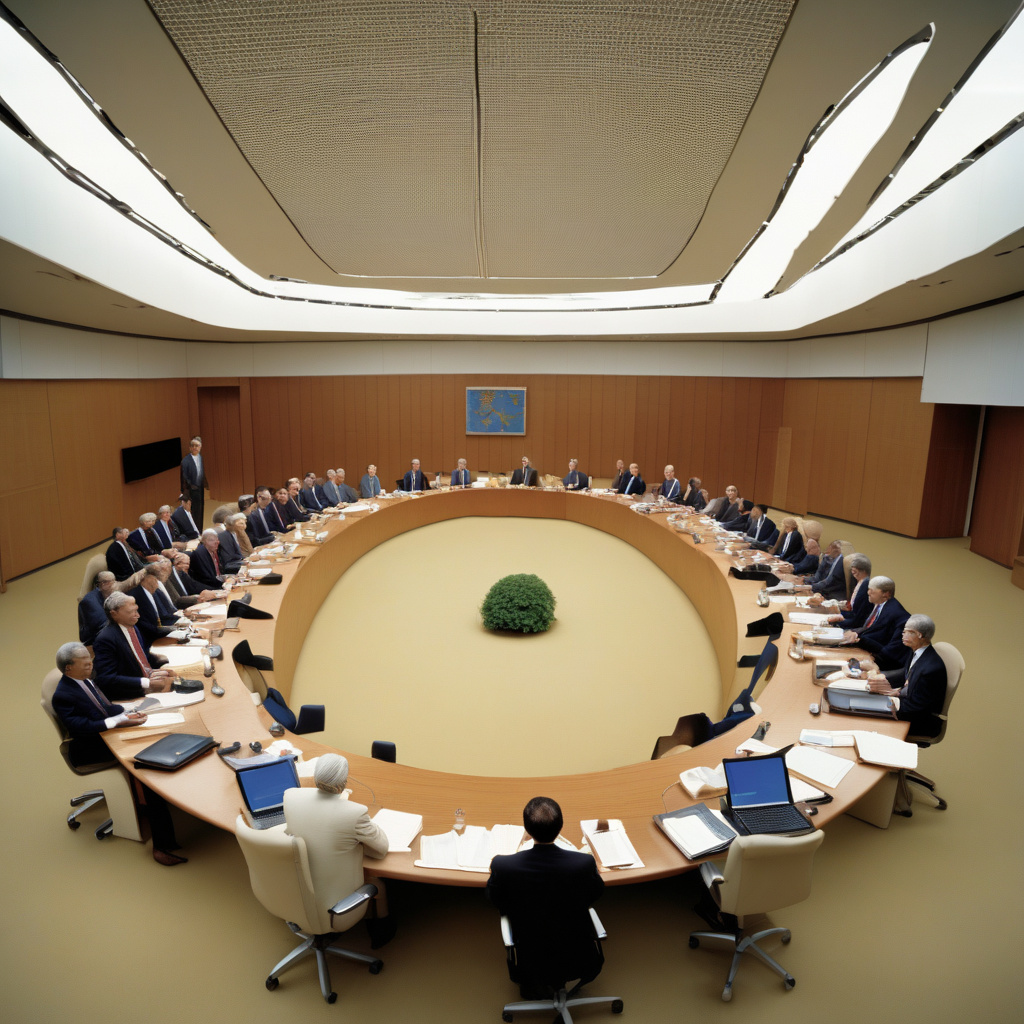The Future of WTO Hangs in the Balance Amidst Trump’s Tariff Strategy
The World Trade Organization (WTO) stands at a crossroads as global trade encounters unprecedented hurdles. With the recent escalation of tariffs by the United States under President Trump’s administration, the international trade landscape is undergoing significant turbulence. The decisions made in response to these challenges will not only shape the immediate economic outlook but also have a lasting impact on the future of the WTO and the rules-based global trading system.
The WTO, established in 1995, has played a critical role in promoting free trade, resolving disputes, and setting international trade standards. However, the organization now faces a crucial test as the fundamental principles it upholds are being called into question. President Trump’s aggressive tariff policies, particularly towards China and the European Union, have raised doubts about the efficacy of the WTO in mediating trade conflicts and preventing protectionism.
At the heart of the current crisis is the dilemma of whether nations can come together to safeguard the rules-based trading system or if they will succumb to a more fragmented and nationalist approach. The escalating trade tensions threaten to undermine the principles of multilateralism and cooperation that have underpinned the global economy for decades. The outcome of this struggle will not only determine the immediate economic repercussions but will also shape the future trajectory of international trade relations.
One of the key challenges facing the WTO is its ability to adapt to the changing dynamics of the global economy. The rise of digital commerce, the increasing importance of services trade, and the complexities of supply chains all present new challenges that the organization must address to remain relevant. Failure to modernize and evolve in response to these trends risks rendering the WTO ineffective in tackling the pressing issues of the 21st century.
Moreover, the WTO must regain the trust and confidence of its members to effectively fulfill its mandate. Developing countries, in particular, have raised concerns about the unequal playing field in global trade and the perceived bias towards the interests of developed nations. Addressing these disparities and ensuring that all members have a voice in the decision-making process will be essential in strengthening the legitimacy of the WTO.
To navigate these turbulent waters, nations must reaffirm their commitment to the principles of free trade, cooperation, and multilateralism. Collaborative efforts to reform and revitalize the WTO can help restore confidence in the rules-based system and ensure that it remains a cornerstone of the global economy. By working together to address the challenges of the present and future, nations can pave the way for a more inclusive, sustainable, and prosperous trading system.
In conclusion, the future of the WTO hangs in the balance as global trade faces mounting challenges. The decisions made in response to the current crisis will be pivotal in determining whether the organization can adapt, evolve, and continue to uphold the principles of free and fair trade. By seizing this opportunity to strengthen international cooperation and reaffirm their commitment to the rules-based system, nations can shape a more resilient and inclusive global trading environment for generations to come.
WTO, global trade, tariffs, rules-based system, international cooperation
